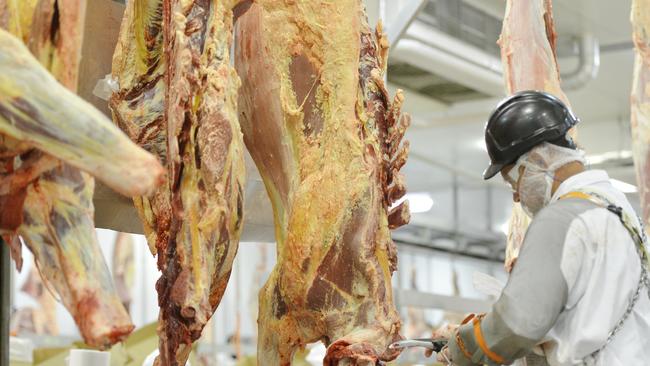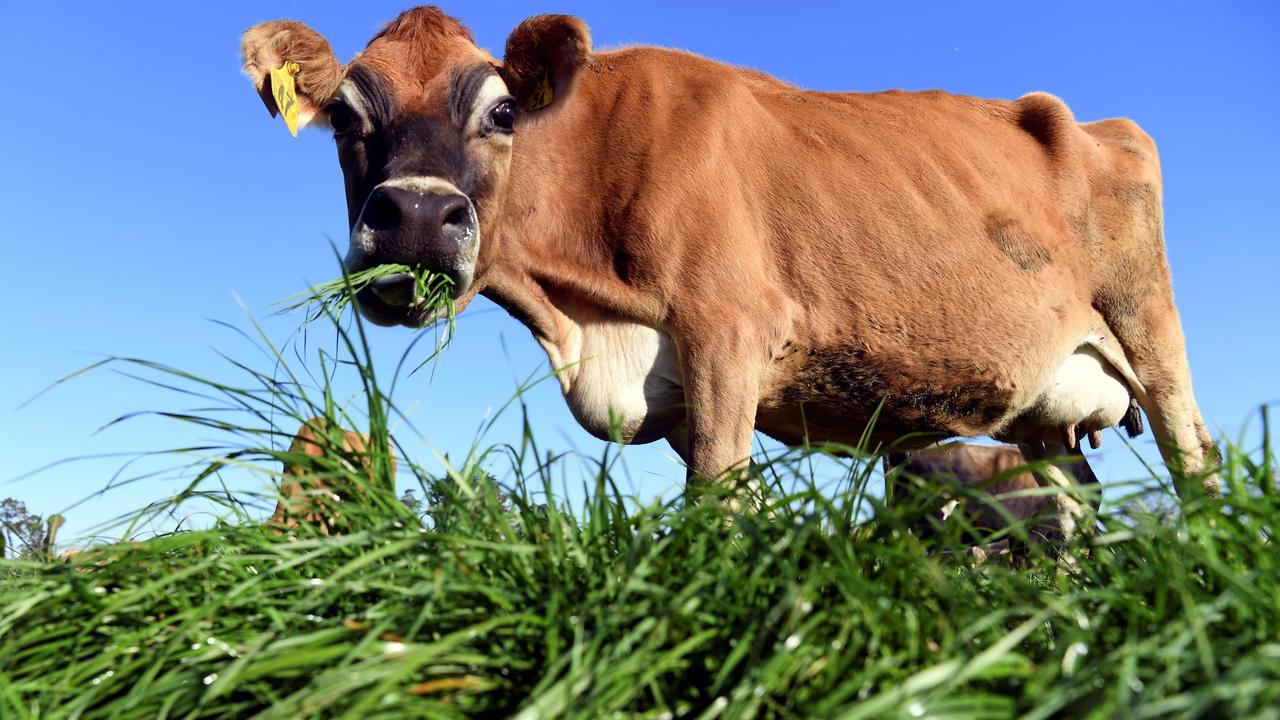China has suspended four Australian export abattoirs amid trade tensions
UPDATE: China has suspended four Australian export abattoirs amid escalating tensions between the two nations over the origins of the coronavirus crisis.

CHINA has suspended four Australian export abattoirs amid escalating tensions between the two nations over the origins of the coronavirus crisis.
The Weekly Times understands the suspended abattoirs are the Kilcoy plant in Queensland, Beef City west of Toowoomba, the Dinmore meatworks in Brisbane and the Northern Co-operative Meat Company at Casino in NSW.
The move comes as China flags tariffs of up to 80 per cent on Australian barley.
Trade Minister Simon Birmingham confirmed to The Weekly Times the Government was advised late Monday of the four suspensions, over labelling and health certificate requirements.
“We are concerned that the suspensions appear to be based on highly technical issues, which in some cases date back more than a year,” Mr Birmingham said.
“I’ve been speaking with industry leaders, colleagues and departments overnight to formulate a comprehensive response.
“We will work with industry and authorities in both Australia and China to seek to find a solution that allows these businesses to resume their normal operations as soon as possible.”
Tensions between Australia and China have been growing in recent weeks since Australia pushed for a global investigation into the origins of the coronavirus pandemic.
Australian red meat exports to China are worth more than $1.66 billion, accounting for a 17 per cent share of the market.
National Farmers’ Federation president Fiona Simson said the agriculture industry was worried about the deteriorating relationship at a government level between Australia and China. Ms Simson described the move as “extremely concerning”, and one that would potentially have implications for other Australian markets in China.
“It would be disappointing to see such an important market jeopardised because of political point-scoring by either side,” Ms Simson said.
China’s ambassador to Australia Cheng Jingye last month warned Australia’s push for a coronavirus investigation could lead to a consumer boycott of Australian goods and services.
Victorian Farmers Federation livestock president Leonard Vallance blamed the abattoirs’ suspension on “political posturing” by the Chinese Government.
“The Chinese probably need to go hungry for a bit,” Mr Vallance said. “The Chinese no longer have a pig herd, they no longer have a chicken flock – because they ate them – so what are the Chinese people going to eat? If the Chinese Government is prepared to let their population starve … on a humanity basis I don’t think it is helping anyone.”
In a statement, the Australian Meat Industry Council said it was “well aware that China has strict requirements for technical matters, including labelling, and the Australian meat industry takes these concerns exceptionally seriously”.
“While not desirable, we have dealt with issues of this nature before and are working closely with the Commonwealth,” AMIC said.
Ms Simson said while China was “a very important market for Australia” it was imperative “we observe the trading rules as well”.
Speaking to media this afternoon, Mr Birmingham maintained the suspensions were due to “minor technical breaches”, and not Australia’s call for coronavirus inquiry.
“I think right around the world, people would expect that when hundreds of thousands of people have died, millions of people have lost their jobs, and billions of people have had their lives disrupted, of course there should be a thorough investigation and inquiry into it,” Mr Birmingham said.
“But it’s in no way related, in no way related, to the export arrangements for Australian beef or for Australian barley or for anything else.
“We certainly don’t see any relationship and we would expect that no other country should see a relationship between those factors either.”
Mr Birmingham expected all the technical issues - some of which are believed to date back to a 2017 suspension of six meatworks - have already been, or were in the process of being addressed.
Agriculture Minister David Littleproud said the Government would continue to work “constructively” on the issue with China, as well as with the affected processors “to ensure we can rectify this as quickly as we possibly can”.
Brazilian media overnight reported that “amid political tensions with Australian officials, China today suspended beef imports from four meatpackers in Australia, two of which belong to JBS. The Chinese authorities’ decision raised concerns among Brazilian slaughterhouses”.
Beef City and Dinmore abattoirs are owned by JBS Australia. According to the JBS website, Beef City processes up to 1134 cattle a day while Dinmore processes 3400 head a day.
Kilcoy, at Winya in Queensland, is owned by China’s Hosen Capital. It underwent a $120 million upgrade in 2018.
The Northern Co-operative Meat Company is Australia’s largest meat processing co-operative.
In 2017, China suspended six abattoirs, including JBS Australia’s Beef City, JBS Primo, Kilcoy, Northern Co-operative Meat Company, Australian Country Choice in Brisbane and Thomas Food International’s plant at Murray Bridge in South Australia, accounting for about 30 per cent of Australia’s beef exports to China.
In a statement, JBS Australia said it was working with the federal agriculture department “to understand the technical issues that China has raised”.
— with NATALIE KOTSIOS
MORE
‘DEEP CONCERN’ AS CHINA MOOTS BARLEY TARIFFS



